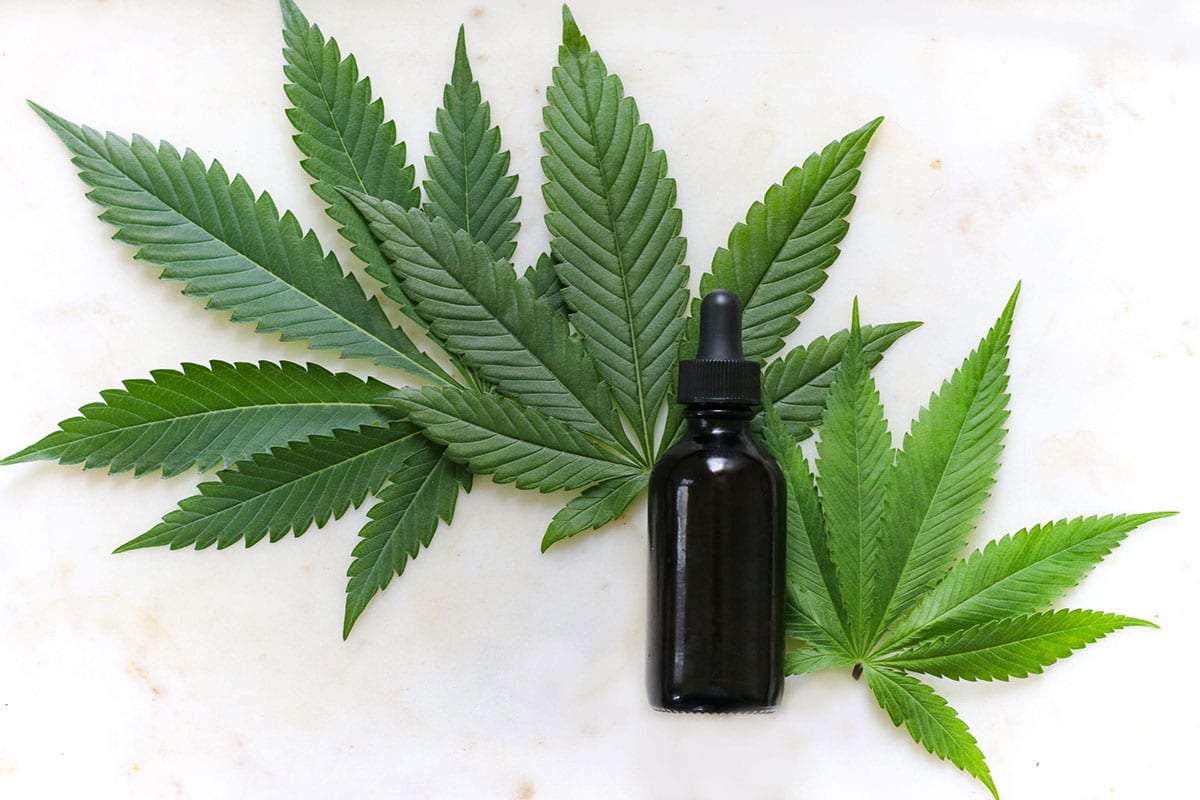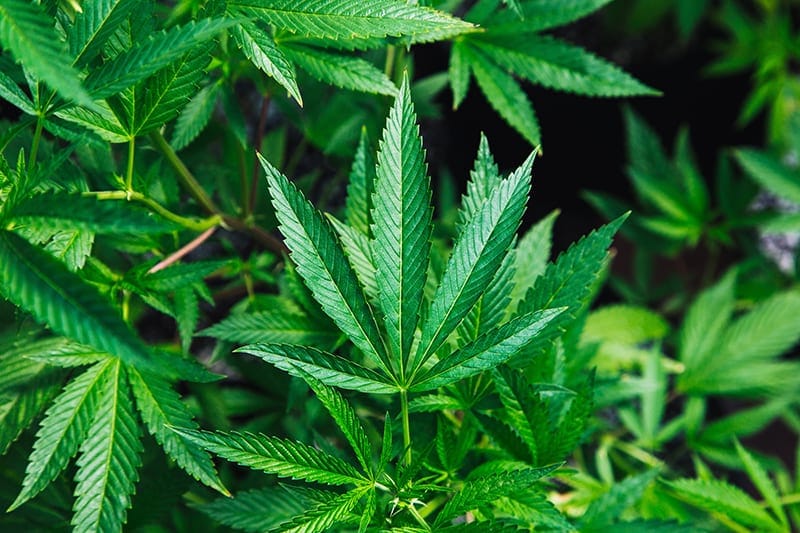The cannabis plant contains a variety of compounds, known as cannabinoids. The three that make up the largest parts of the marijuana plant are tetrahydrocannabinol (THC), cannabidiol (CBD), and cannabinol (CBN).
Working With the Endocannabinoid System (ECS)
This system regulates many important functions in the body, including sleep, pain, immune system, and appetite. The ECS has three parts: endocannabinoids, receptors in the nervous system that endocannabinoids bond with, and enzymes to break down endocannabinoids and cannabinoids.
The ECS works to regulate the body. For example, it makes the body shiver or sweat when the temperature gets too cold or warm. The ECS uses cannabinoid receptors to regulate many important functions in the body.
The CB1 receptors work with functions involving the brain and nerves. The CB2 receptors work with systems such as the digestive system and the immune system.
If the ECS is not working properly, people can suffer many health problems, such as fibromyalgia, migraine headaches, and irritable bowel syndrome (IBS). Cannabis products activate the ECS system, which is why they are popular in treating these health problems.
THC
When most people think of marijuana, they think of getting high. THC is responsible for such an effect. It works by acting like the body’s natural cannabinoid chemicals in the ECS. The brain has cannabinoid receptors that relate to the body’s memory, thinking, pleasure, perception of time, and coordination. THC, acting as a natural cannabinoid chemical, attaches to the brain’s cannabinoid receptors. This affects a person’s thinking, memory, and perception of time, as well as, produces a sense of pleasure.
Often, people vape so that they can ingest the THC content quicker. It is considered healthier than smoking because it does not release the carcinogens and tar which smoking does. However, it can still cause serious lung diseases that people have died from.
Because of the way this cannabis component interacts with the ECS, people who have taken marijuana often have impaired judgment and find it difficult to focus on complicated tasks. But THC also works with a person’s “reward system.” These regions are responsible for the pleasure that comes with activities such as eating. THC stimulates the body to produce dopamine in much higher amounts than from normal stimuli. This is why people who usually use marijuana for recreation experience a “high”.
Generally, these effects start just 10 minutes after marijuana is taken. They can last for about two hours afterward. Some of the effects are better for users than other effects. For example, some users have reported feelings of elation, relaxation, relief from pain, and sedation. On the other hand, some users have reported feeling more anxious, having trouble recalling things that happened recently, and a racing heartbeat.
Marijuana is one of the most common drugs in the world, partly because of the beneficial effects. But it can be dangerous for users. Sometimes, it can cause symptoms of schizophrenia. Studies have also shown that teens who used marijuana did worse on cognitive tests later on in life. The study concluded that teens who waited until the age of 17 to use marijuana did not show these effects.
CBD
Unlike THC, CBD does not make the user high and is not nearly as dangerous. This is because it does not contain any psychoactive elements. CBD is gaining popularity in the world of natural products and medicines. In recent years, people have been able to extract CBD from the marijuana plant to produce oils and resins that do not contain any psychoactive elements. This means that both patients and people interested in their health can safely take CBD.

What CBD Can Treat
There are a wide variety of conditions CBD has been shown to relieve. CBD has a calming effect, and it has been shown to help with anxiety. It can also help with post-traumatic stress disorder, social anxiety, generalized anxiety, and obsessive-compulsive disorder.
Another health issue that CBD can help with is heart disease. Because it has a calming effect, it can help lower blood pressure related to stress. Patients with lower blood pressure are less likely to suffer from heart problems, such as heart attack.
Patients who have epilepsy can benefit from CBD, as well. A 2018 clinical trial showed that CBD could treat two rare forms of childhood epilepsy.
CBD Products
There are a few other ways users choose to use CBD aside from smoking it. Two of the most popular ways are as oil and in alcohol.
Tinctures
Tinctures are essentially cannabis-infused alcohol. This can be consumed by itself, or it can be mixed with food. They usually start working sooner than other cannabis edibles. Instead of having to wait several hours to determine if it worked, users will be able to tell right away whether or not they need to take more.
They have a shelf life of several years or more. They are also easy to make at home with the right ingredients, so a user could easily make several batches at once to provide several sources of cannabis.
CBD Oil
CBD oil is made by extracting the CBD from the marijuana plant and diluting it with a carrier oil such as hemp seed oil or coconut oil. CBD oil has several health benefits.
First, this oil can relieve pain because it works with endocannabinoid receptors and works with neurotransmitters. Several human studies have concluded that oil can reduce the pain associated with arthritis and multiple sclerosis.
Another benefit of CBD oil comes from its anti-inflammatory properties. A few rodent studies showed that oil could reduce inflammation in the joints caused by arthritis. It did this by reducing the production of tumor necrosis factor, which causes inflammation.
These anti-inflammatory properties can also help reduce acne. The oil can help reduce the production of sebum, which is one of the leading causes of acne.
One of the most promising health benefits of CBD oil is its use in cancer patients. Cancer treatments often cause problems such as vomiting, nausea, and overall pain. Studies found that when the oil was administered as a spray by mouth, patients experienced less nausea and vomiting. It is known that the extract can also reduce pain.
But perhaps one of the most anticipated applications of the oil stems from its potential anti-cancer properties. One study found that concentrated CBD oil helped kill cancer cells in breast cancer. It has also been shown to help reduce the spread of breast cancer cells.
Because this oil works on the ECS, it can help patients with epilepsy and other neurological disorders. It can reduce muscle spasms, and research is being done on how this oil can help patients with Parkinson’s disease.
CBN
Cannabinol is mostly found in aged cannabis plants. This is known as one of the minor cannabinoids because it is not as well-known as THC and CBD.
This compound is mostly found in older plants because it forms when tetrahydrocannabinol decomposes and oxygenates. CBN is formed when THC breaks down, and the plant is stale. However, just because CBN is from an aged cannabis plant does not make it any less useful than cannabinoids from younger plants.
When scientists were first studying the cannabis plant many years ago, cannabinol was the first of the cannabinoids to be discovered.
CBN as a Powerful Sedative
When people have trouble sleeping at night, they often turn to sleep medications to help them get a good night’s rest. But these medications can have unwanted side effects.
Research has shown that CBN can have a sedative effect. Studies done in mice have shown that cannabinol helped them sleep for a longer period of time than in mice that did not have the cannabinoid. Some studies suggested that CBN’s sedative effect increased when it was combined with THC.
Steep Hill Labs, a cannabis research facility, initially found that CBN has a strong sedative effect. However, after more trials, they did not find further evidence of its effectiveness.
Currently, there is a lack of research on the effectiveness of CBN as a sedative. While one highly cited study showed that CBN causes drowsiness, the study only looked at cannabinol in relation to THC. It is possible that the entourage effect contributed to the people in the study feeling sleepy. This is when two or more cannabinoids work together to create a different effect than either one would have by itself. More research is needed on the effects of CBN by itself.

Benefits of CBN
While it is unclear how CBN can work for insomnia, this cannabinoid does help regulate the endocannabinoid system. By working with this system, CBN can provide several benefits to the user.
- Pain relief: Similar to CBD oil, cannabinol can offer pain relief. This is because it can alter the pain signals that are sent to the brain. Another way CBN can help relieve pain is by making the body more sensitive to capsaicin. Capsaicin is found in many pain relievers, and the nerves that are sensitive to this chemical are important for how the body perceives pain.
- Glaucoma treatment: Glaucoma is a degenerative eye condition that damages the eye’s optic nerve. Some research suggests that CBN can help treat this condition.
- Bone regeneration: Cannabinol can help one’s bones regenerate. This is because cannabinol helps stimulate stem cells, which make new bone cells. It may also help reverse osteoporosis because of its bone regenerating properties.
- Antibacterial properties: Some research has shown that cannabinol can help fight bacteria that are resistant to antibiotics. The study focused on MRSA bacteria, which are known to be resistant to antibiotics.
- Cancer-fighting: While more research is needed, there is some evidence that CBN can help fight cancer. One study showed that cannabinol played a role in reducing the size of a tumor in the lung.
- Anticonvulsant properties: A few studies have shown that cannabinol has anticonvulsant properties, meaning they have been effective in treating epileptic seizures.
Side Effects of CBN
More research is needed on the side effects that these cannabinoids can cause. While these are generally harmless substances, they can cause a few side effects that users should be aware of.
- Tiredness
- Dizziness
- Drowsiness
The undesirable effects of CBN are very few, which make this cannabinoid very desirable as a more natural alternative to other medications.
However, when used with other medications, harmful effects can occur. For example, Diazepam is a prescription medication that is used to treat problems such as seizures and anxiety. While CBN can be quite beneficial in treating these problems, it should not be used with Diazepam. It can increase symptoms of dizziness, confusion, and drowsiness. People taking both of these at the same time may have trouble concentrating or using their motor skills.
Like CBD, cannabinol takes a while to build up in the body. First-time users should start off slowly and increase their dosage over time, which will minimize any undesirable effects.
CBD Vs. CBN
The main difference between CBD and CBN is in their chemical compounds. The base of all cannabinoids consists of cannabigerolic acid (CBGA). When this base is combined with other components, it forms a few acidic precursors of the components of cannabis:
- CBDA: This is the acidic precursor to CBD.
- CBCA: This is an acid that becomes CBD, which is the component in the popular CBD oil.
- THCA: Tetrahydrocannabinolic acid is the acidic precursor to THC, the psychoactive component of marijuana.
The marijuana plant does not initially contain cannabinol. This forms after several weeks as ultraviolet rays from the sun trigger CBN to form in the plant naturally.
Another big difference between the two is that CBN can be slightly psychoactive if the user takes it in large doses. This is because it is derived from THC. However, because it is derived from aged THC, a user must take a lot of CBN to notice any psychoactive effects. But users who face routine drug screening as part of their occupation will want to be aware of this.
There are a few other minor differences between the two in the health conditions they can treat. Unlike CBD, cannabinol can help bones grow, making it an ideal treatment for osteoporosis. It can also help with treating burns, killing bacteria, preventing seizures, and stimulating the appetite.
Appetite Stimulant
CBN has a very different effect than CBD when it comes to appetite. While CBD makes the user feel less hungry, CBN stimulates the appetite. This can be very beneficial for people who struggle to maintain or gain weight because of medical conditions. For example, cancer patients often lose weight because chemotherapy treatments make them feel less hungry.
Final Thoughts
While CBD and CBN are both cannabinoids, they are formed in different ways and have distinct uses. While CBN has many uses that do not apply to cannabidiol, cannabinol is still the most useful cannabinoid.
The Food and Drug Administration (FDA) has not approved any marijuana products as safe. However, they have approved a purified form of CBD in a seizure medication. This medication can treat Dravet syndrome or Lennox-Gastaut syndrome for patients who are at least two years old.
While more research is needed on the true potential of cannabinol, it does offer many benefits for conditions that may be unresponsive to other medications.
CBD Clinicals is reader-supported. When you buy through links on our site, we may earn an affiliate commission. Learn more











